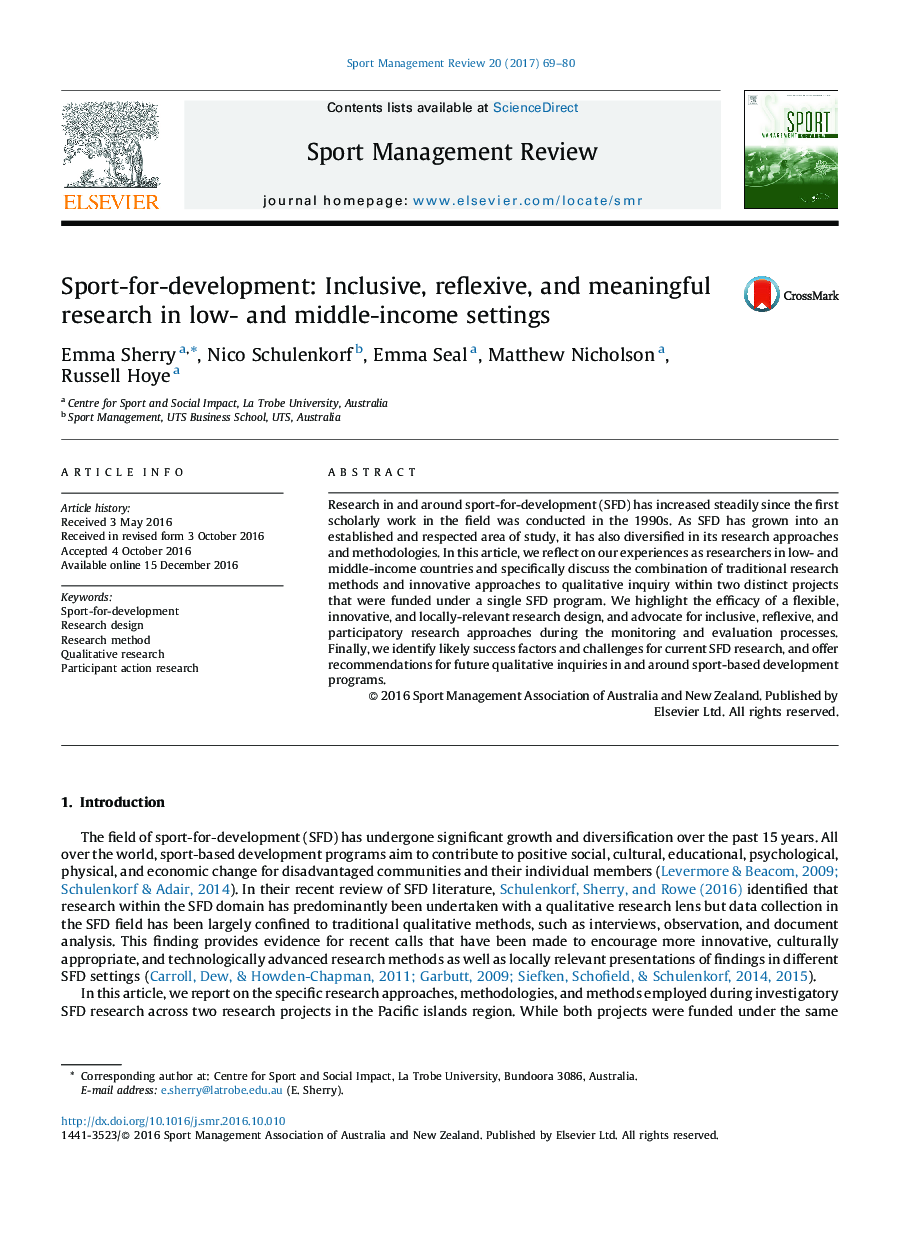| Article ID | Journal | Published Year | Pages | File Type |
|---|---|---|---|---|
| 4762034 | Sport Management Review | 2017 | 12 Pages |
â¢Sport-for-development has diversified in its research approaches and methodologies.â¢Reflection on our own qualitative research in low- and middle-income countries.â¢Discussion of traditional methods and innovative research practices.â¢Highlights the efficacy of flexible and locally relevant research designs.â¢Advocacy for inclusive, reflexive, and participatory research approaches.
Research in and around sport-for-development (SFD) has increased steadily since the first scholarly work in the field was conducted in the 1990s. As SFD has grown into an established and respected area of study, it has also diversified in its research approaches and methodologies. In this article, we reflect on our experiences as researchers in low- and middle-income countries and specifically discuss the combination of traditional research methods and innovative approaches to qualitative inquiry within two distinct projects that were funded under a single SFD program. We highlight the efficacy of a flexible, innovative, and locally-relevant research design, and advocate for inclusive, reflexive, and participatory research approaches during the monitoring and evaluation processes. Finally, we identify likely success factors and challenges for current SFD research, and offer recommendations for future qualitative inquiries in and around sport-based development programs.
